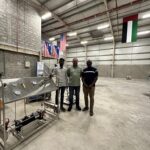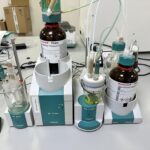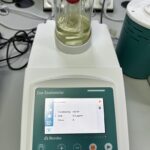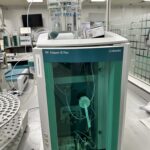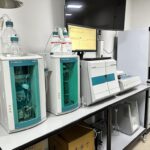
Fiscal Metering & Lab Technician
About the Course:
Flow measurement and custody transfer are vital aspects of fluid handling in many industries such as oil & gas, chemical, and water. These concepts ensure accurate tracking and invoicing of product quantities in transactions.
Flow Measurement:
Flow measurement refers to the quantification of bulk fluid movement. The fluid can be in various forms like liquids, gases, and even slurries, and the measurement helps in determining the speed or capacity at which these fluids are moving.
There are different methods and instruments used for flow measurement, depending on the type of fluid and its flow characteristics. Some commonly used flow measurement devices include:
- Orifice Plates: These devices are used to measure fluid flow rates by creating a pressure differential.
- Venturi Meters: These meters measure fluid flow by reducing the cross-sectional area of the flow path, creating a pressure difference.
- Ultrasonic Flow Meters: These devices measure the speed of fluid flow by using the speed of an ultrasonic signal in the fluid.
- Coriolis Flow Meters: They are used to measure the mass flow rate of a fluid by using the Coriolis effect.
- Turbine Flow Meters: These meters have a rotor that spins at a rate proportional to the velocity of the fluid.
Over five days, we will deep dive into:
- Basic Fluid and Gas Laws
- Flow Measurement Principles and Devices
- Performance of Flow Meters
- Detailed Analysis of Various Flow Meters
- Practical Custody Transfer Considerations
DURATION
Our daily agenda seems quite comprehensive, covering a broad range of topics about flow measurement and custody transfer. I will elaborate a bit on each day’s topics to provide more context.
The first day is primarily focused on introducing participants to the fundamental concepts underlying flow measurement. Key topics include basic fluid and gas laws, which are fundamental for understanding how different factors like pressure, volume, and temperature affect fluid flow. It also covers the principles and requirements of custody transfer.
On the second day, participants will learn about the general characteristics and performance of flow meters. This includes understanding different parameters like accuracy, stability, repeatability, sensitivity, noise, linearity, and reliability. Temperature and pressure measurements, which can significantly impact flow measurement, will also be covered.
This day focuses on several specific types of flow meters, including differential pressure (DP) flow meters and positive displacement (PD) flow meters. Attendees will learn about common problems such as erosion, corrosion, cavitation, and obstructions that can affect these meters and how to navigate these issues.
Continuing with the topic of flow meters, the fourth day will cover ultrasonic, magnetic, and Coriolis flow meters. Participants will learn about the unique applications, installation requirements, and standards for each of these types of flow meters, along with the importance of straight run requirements.
The final day will delve into the practicalities of setting up flow measurement systems and the key considerations for custody transfer. This includes understanding the requirements for custody transfer, meter factors, different proving systems, and the role of custody transfer skids. The day will also cover flow computers and communication, furthering the understanding of how modern technology assists in accurate flow measurement and custody transfer.
Exciting Training Opportunity:
Due to overwhelming demand, we are delighted to announce another round of our comprehensive training on ‘Flow Measurement and Custody Transfer’. This training offers a unique blend of theoretical knowledge and practical applications, led by seasoned industry experts.


